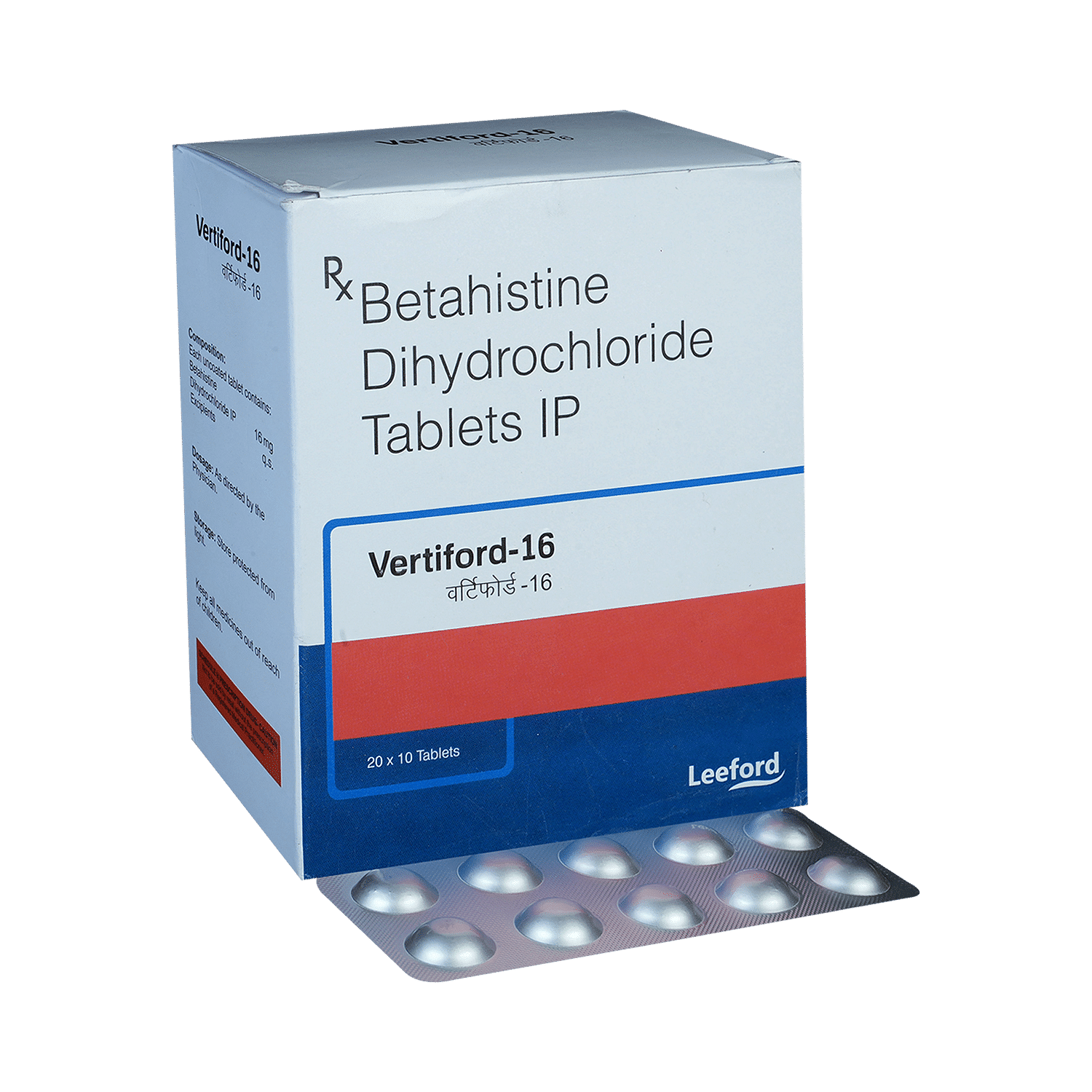
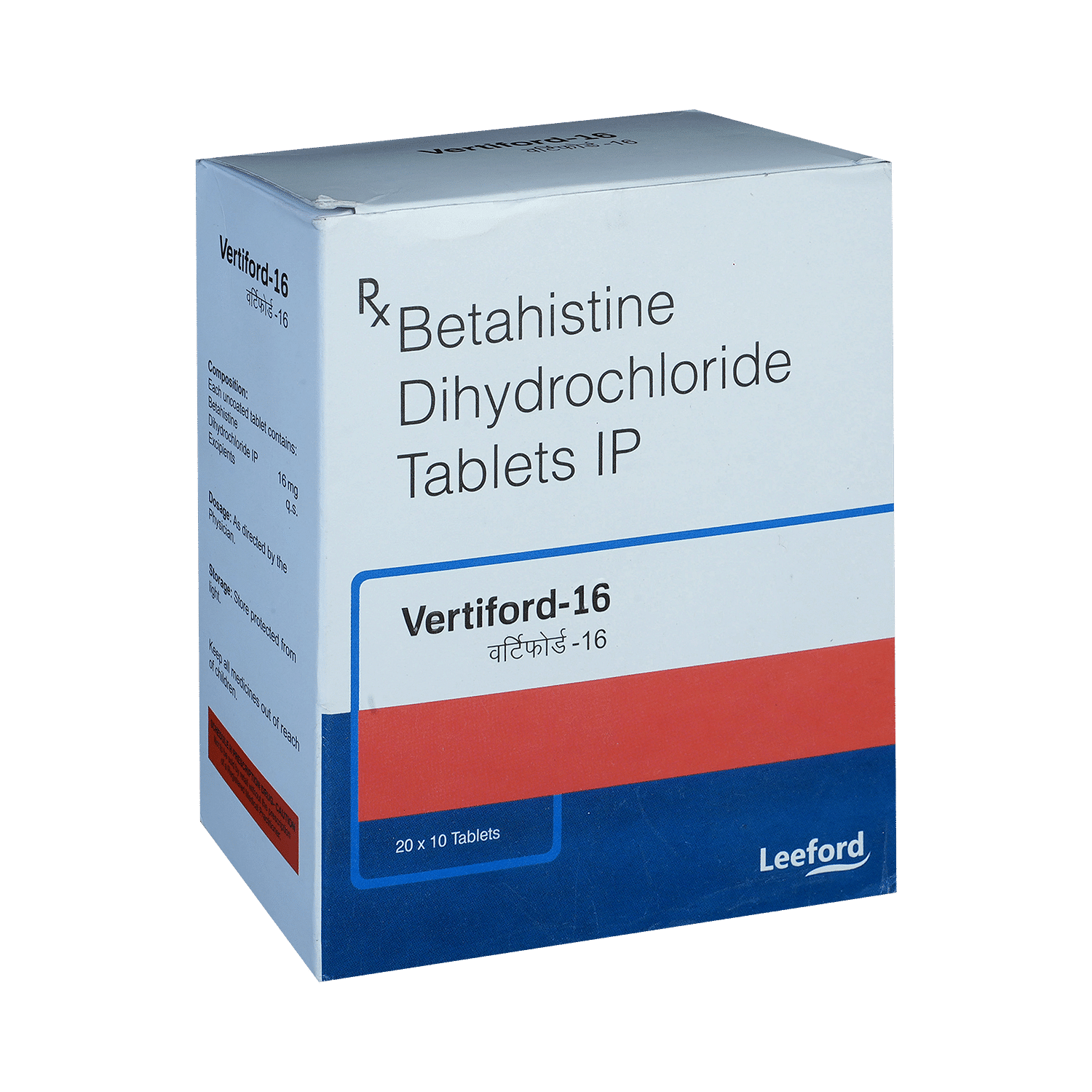
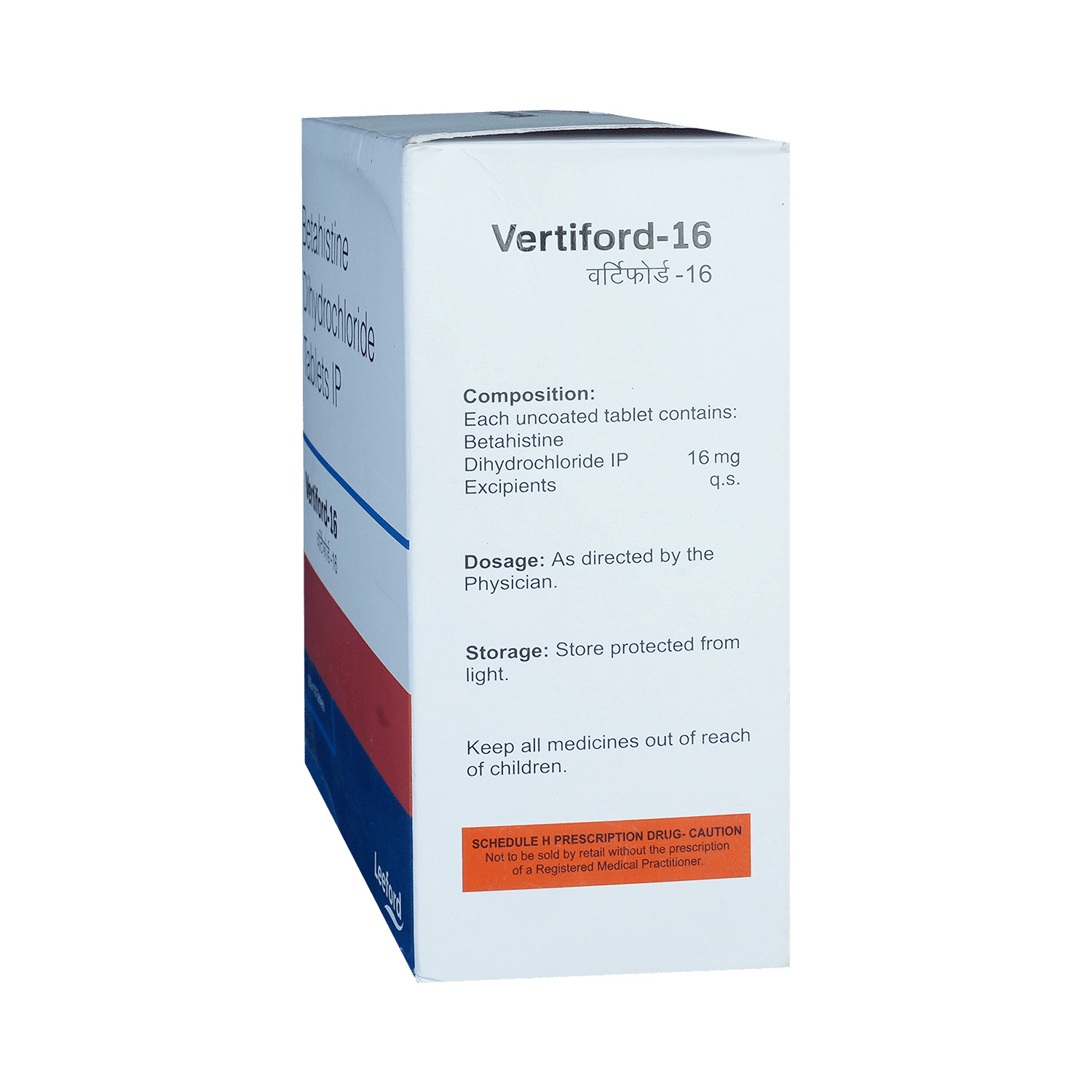
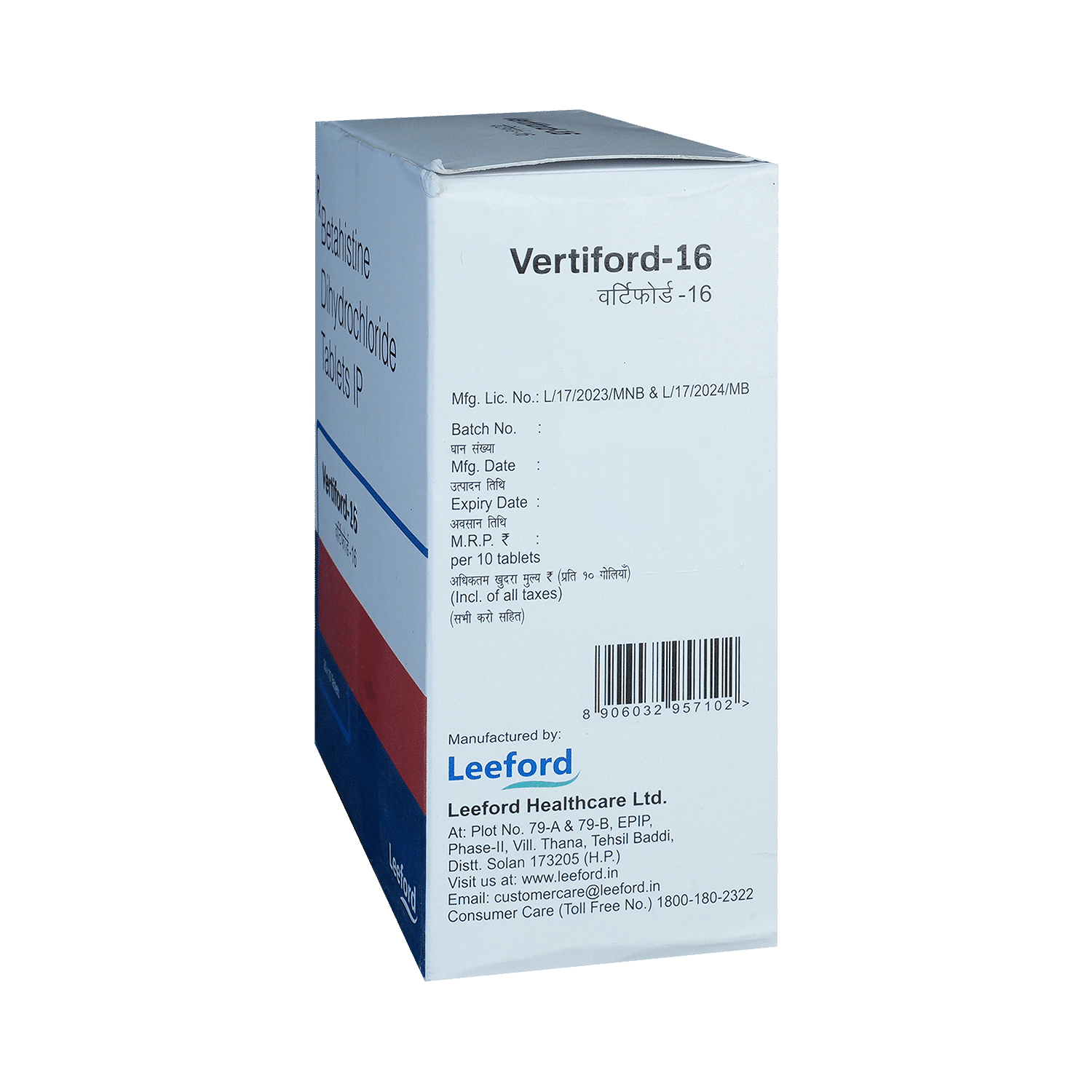
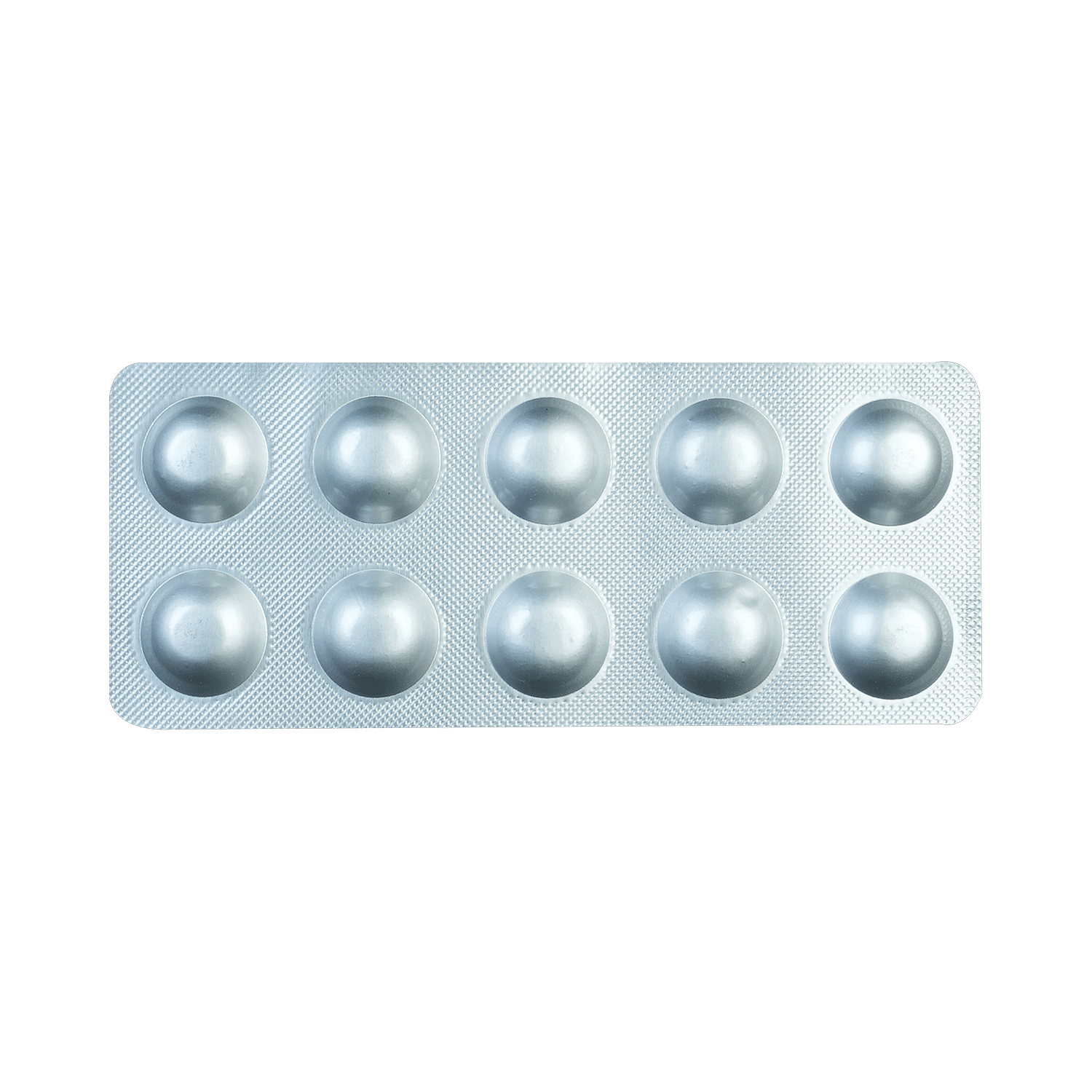
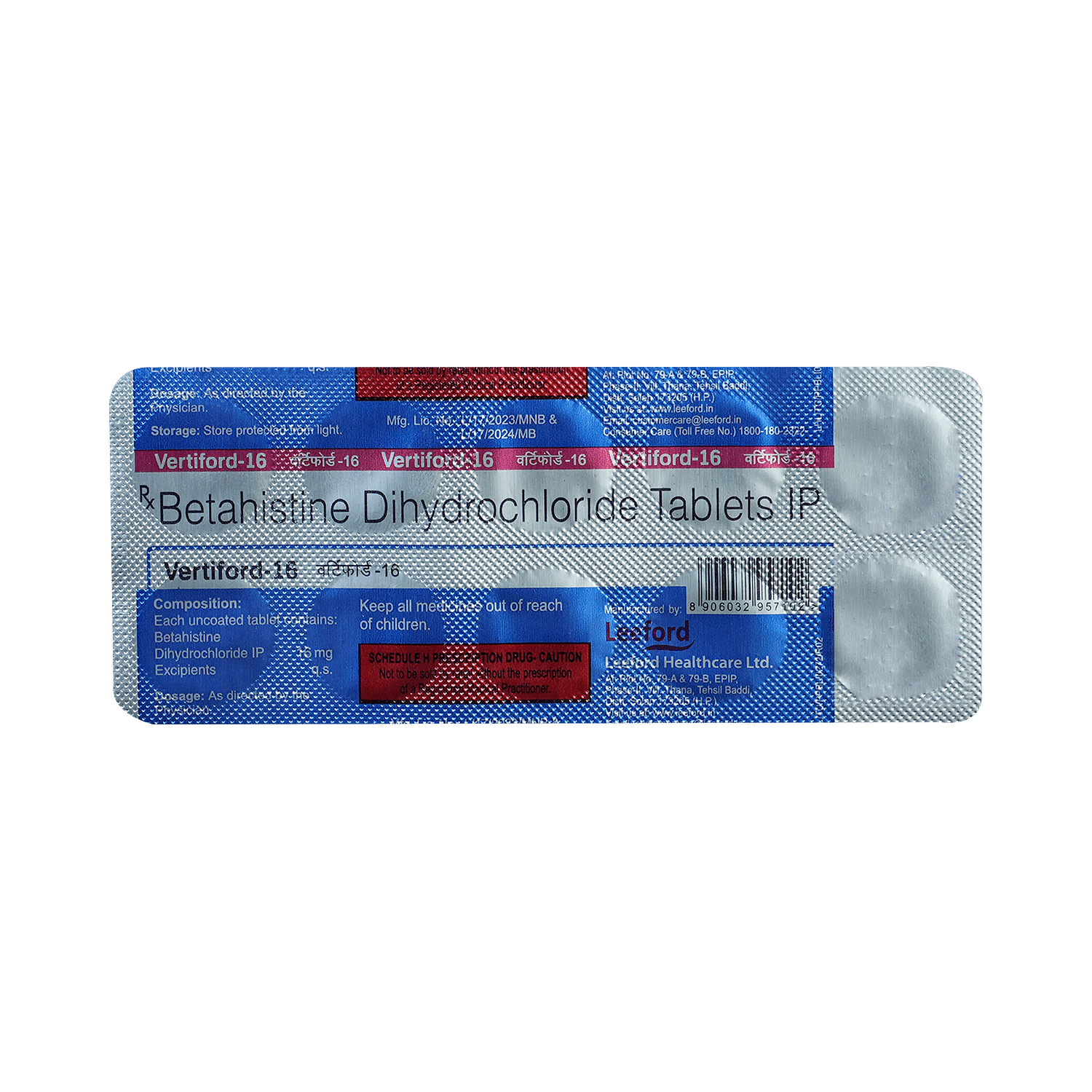
Vertiford 16mg Tablet
Manufacturer
Leeford Healthcare Ltd
Salt Composition
Betahistine (16mg)
Key Information
Short Description
Vertiford 16mg Tablet is used to prevent and treat a disorder of the inner ear known as Ménière’s disease.
Dosage Form
Tablet
Introduction
Vertiford 16mg Tablet should be swallowed whole with water and taken at the same time(s) each day to get the most benefit. Your doctor will decide what is the correct dose to relieve your symptoms and how often you need to take it. You may need to take this medicine for several months and you should take it for as long as prescribed by your doctor even if you start feeling better.
Directions for Use
Take this medicine in the dose and duration as advised by your doctor. Swallow it as a whole. Do not chew, crush or break it..Vertiford 16mg Tablet may be taken with or without food but it is better to take it at a fixed time..Take it at the same time each day to maintain a steady amount of the medicine in your body.
How it works
Vertiford 16mg Tablet is a histamine analog. It works by improving the blood flow in the inner ear which reduces the pressure of excess fluid there. Excess fluid can send signals to the brain causing nausea, dizziness or spinning sensations (symptoms of Ménière's disease). Vertiford 16mg Tablet additionally dampens down the nerve signals sent from the inner ear to the brain relieving the symptoms of Ménière's disease.
Quick Tips
You have been prescribed Vertiford 16mg Tablet to relieve vertigo (dizziness) Healing problems and tinnitus (noise in the ear) associated with Ménière's disease. It can only decrease the number and severity of attacks but may not completely stop them. Taking it with food can help reduce stomach problems. Take it at the same time each day to maintain a steady amount of the medicine in your body.
Related Medicines
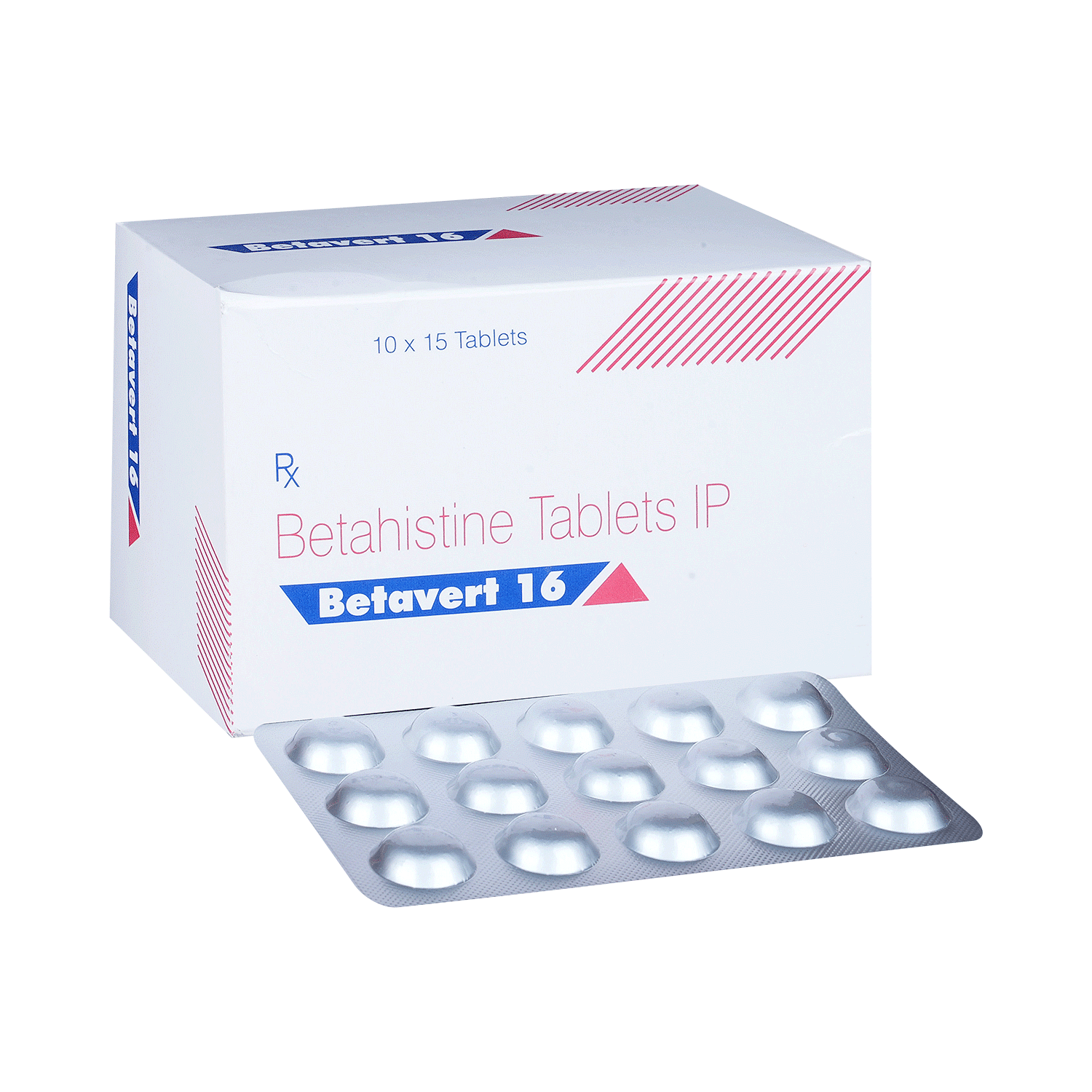
Betavert 16 Tablet
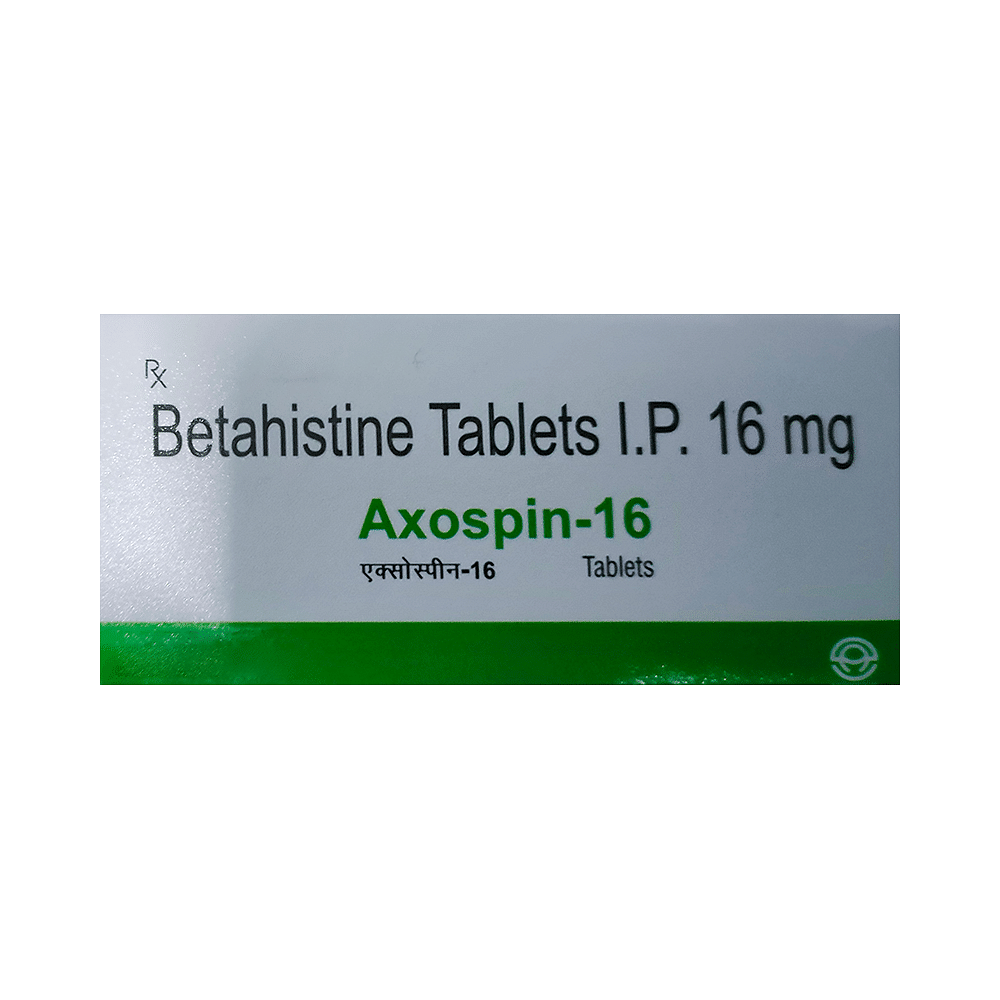
Axospin 16 Tablet
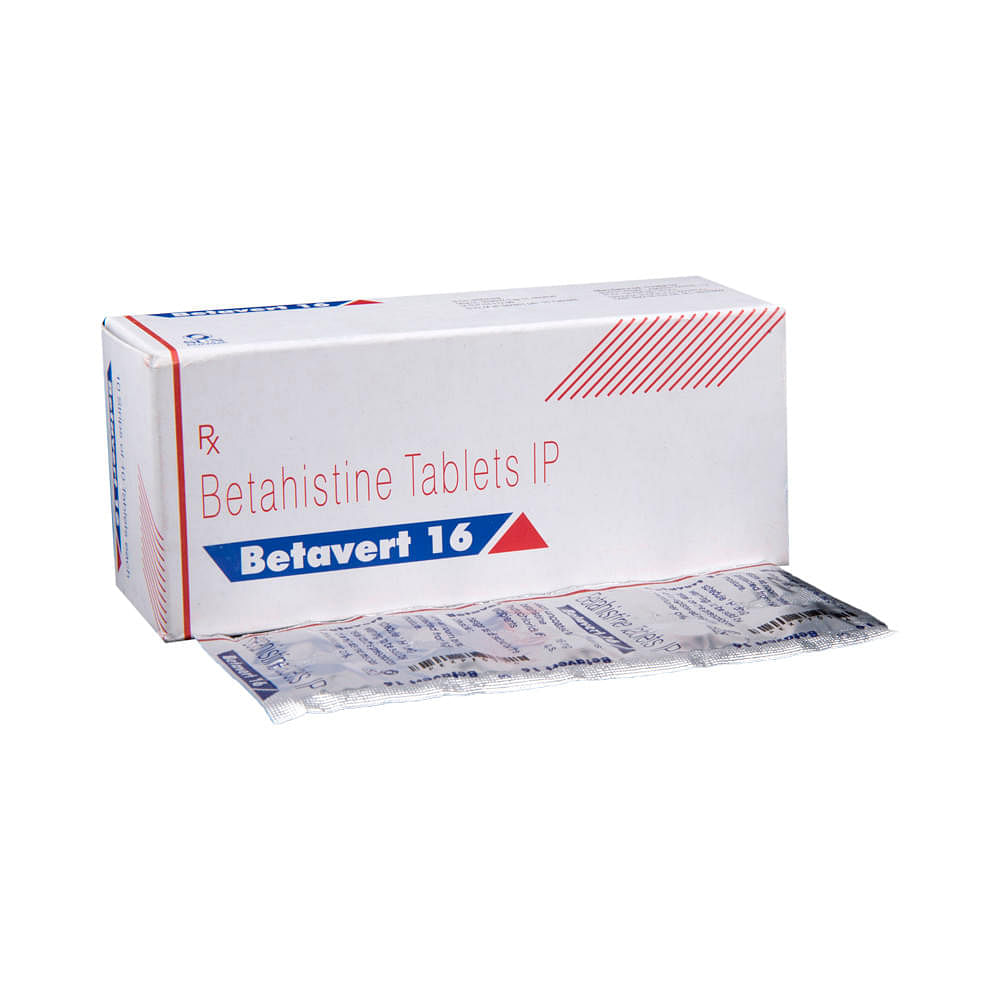
Betavert 16 Tablet
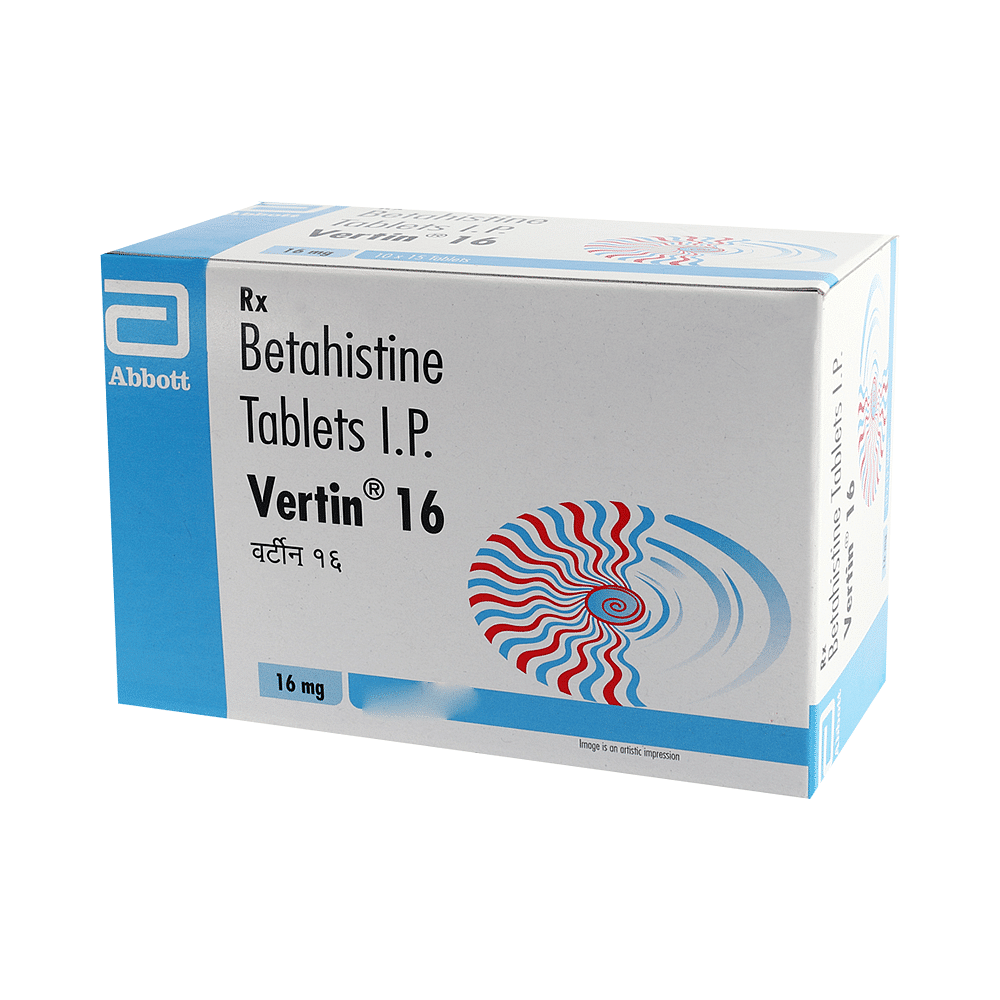
Vertin 16 Tablet

Betafree 16mg Tablet

Vertinist 16mg Tablet

Histawit 16mg Tablet

Vertisrin 16mg Tablet

Verall 16mg Tablet

Avutine 16mg Tablet
Frequently asked questions
What is Meniere's disease? Does it go away?
Meniere's disease is a complex inner ear disorder that affects balance and hearing. Symptoms include vertigo, fluctuations in hearing, tinnitus (ringing or buzzing in the ears), and pressure in the ears. While there may be periods of remission, the condition can persist and its course can vary greatly from person to person.
Is Vertiford 16mg Tablet effective?
Vertiford 16mg Tablet has been found to be effective for managing symptoms related to vertigo when used as directed by a healthcare professional. It's essential to follow the prescribed dosage and treatment duration to ensure optimal results and minimize potential side effects.
What are the triggers for Meniere's disease?
Meniere's disease can be triggered or exacerbated by various factors, including stress, fatigue, emotional distress, and changes in altitude or pressure. Additionally, certain foods and substances like caffeine, alcohol, and high-sodium foods may also contribute to symptoms.
What if I forget to take a dose of Vertiford 16mg Tablet?
If you miss a dose of Vertiford 16mg Tablet, take it as soon as you remember. However, if it's almost time for your next scheduled dose, skip the missed one and resume your regular dosing schedule. Avoid doubling up on doses to compensate for a missed one, as this may increase the risk of side effects.
Is stress a reason for vertigo?
Stress can indeed contribute to vertigo symptoms, particularly in individuals with pre-existing balance-related conditions. High levels of mental stress can make vertigo worse, but by itself, it won't directly cause vertigo.
What are the causes of vertigo?
Vertigo is often caused by issues related to the inner ear or its connection to the brain. Common triggers include sudden drops in blood pressure, dehydration, motion sickness, and certain medications. In some cases, vertigo can also be a symptom of other underlying medical conditions.
How long should Vertiford 16mg Tablet be taken?
The duration of treatment with Vertiford 16mg Tablet varies depending on individual responses to the medication. It's essential to follow your healthcare provider's guidance and take your tablets as directed for the prescribed amount of time. Regular monitoring and adjustments to your treatment plan may be necessary.
What are the common side effects of Vertiford 16mg Tablet?
Common side effects associated with Vertiford 16mg Tablet include mild gastrointestinal issues like nausea, stomach discomfort, bloating, and vomiting. To minimize these risks, take your tablets with food as directed by your healthcare professional.


